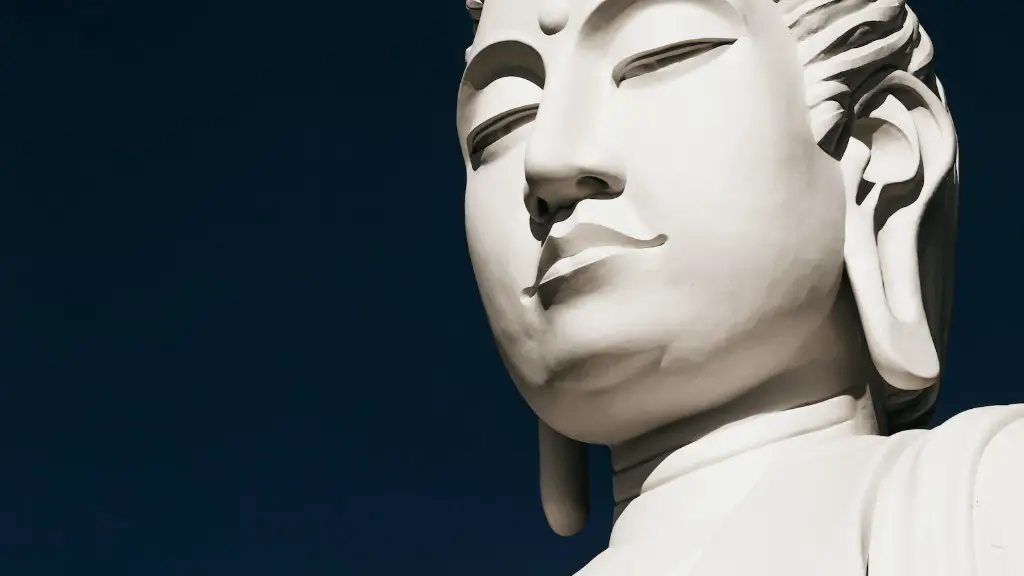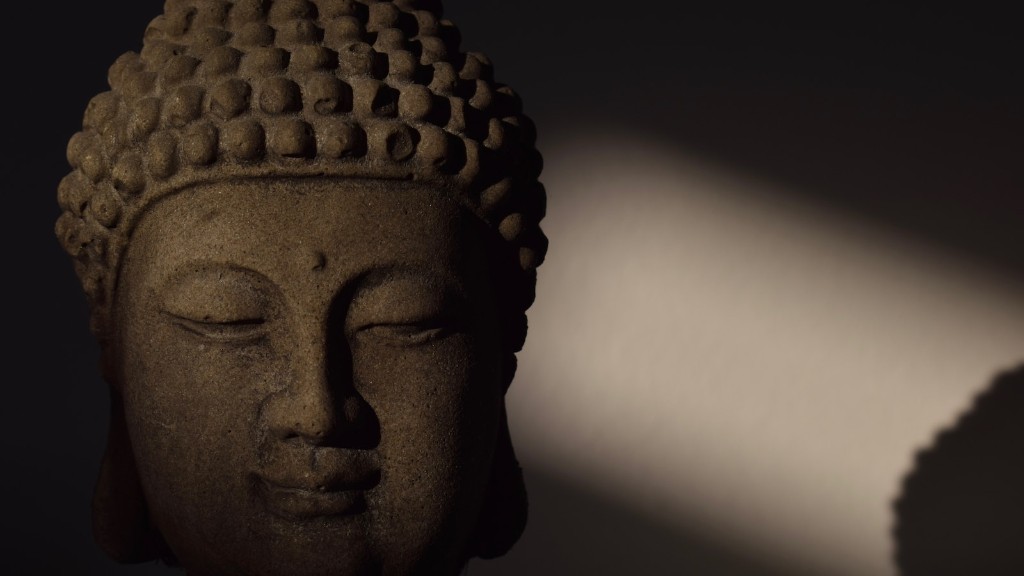An Overview of Hinduism
Hinduism is the oldest and one of the most complex forms of religion in the world. It is thought to have originated in India and has been around in some form for more than 3,000 years. It has evolved over the centuries with a combination of various beliefs and practices from indigenous Indian cultures, as well as some from other religions and philosophies. Hinduism is not a single faith, but rather several different forms of Indian spiritual and religious beliefs. The main idea behind Hinduism is the belief in one underlying divine power, often referred to as Brahman.
Hinduism does not have a single founder, unlike some other religions, and it includes numerous sacred texts. These texts contain stories, rituals, rules, and other teachings on how to live a good life. Hinduism also emphasizes the concept of karma, which implies that all aspects of life are interrelated and the actions we take can have long-lasting effects on our lives, our relationships, and the universe.
For Hindus, the concept of one god is central to their beliefs. However, this one god is often referred to as Brahman, which is what represents the absolute divine power or unity that binds all things and all creation. Hindus believe that Brahman is present in all things and that this divine power manifests itself in different ways. This is why Hindus recognize many gods and goddesses, although they recognize that these deities are just different manifestations of one single divine being. Hindus also believe that the soul, or Atman, is a part of Brahman, which means that all living beings are connected to the divine at a core level.
Plurality in Indian Thought
Rejecting the idea of monotheism, which is based on the belief in one single god, many Hindus accept the idea of a plurality within the one divine power. This is often referred to as Henotheism, which is similar to Monotheism, but with the recognition of the existence of other divine forces or powers. Some Hindus believe that all gods and goddesses are reflective of the one divine power and represent one part of the same whole. Others, however, believe that each god or goddess represents a different manifestation of the same divine power.
Many Hindus also recognize various forms of divine energy, such as Shakti and Brahman. They believe that each divine force is a manifestation of the same underlying source. Hindus also believe that divinity or Brahman can be manifested in various ways, such as through people, animals, and nature. This belief has been an integral part of Indian culture for centuries and is reflected in Hindu art, literature, and philosophy.
In Hindu thought, individuals can choose to worship whichever god or goddess appeals to them the most, as the gods represent different aspects of the one divine power. Hindus do not reject the concept of one god, but rather emphasize the notion that one divine power is reflected in multiple forms. The belief in a single divine power is also believed to be more harmonious and respectful to different faiths.
How is Brahma Viewed?
While many Hindus see one ultimate divinity, or Brahman, as the source of all creation, others view Brahman as a higher form of consciousness. This view states that the universe is not a physical reality but rather a manifestation of a spiritual reality. Hindus who follow this perspective believe that all creation is an illusion, and that Brahman is the only true reality. Brahman is said to be beyond description and incomprehensible, but it is nevertheless the ultimate source of happiness and joy.
In this view, Brahman is seen as the divine power behind the universe, and all living things are said to be made in its image. Hindus who follow this belief see Brahman as the source of all energy, and all forms of energy are said to originate from Brahman. This is why Hinduism encourages people to respect all forms of life, as they are seen as reflections of the divine power. This concept is also known as “ahimsa”, or non-violence.
What Do Hindus Believe About God?
Hindus believe that God is everywhere, and that all living things are reflections of the divine. Hindus also may pray to these various gods and goddesses for blessings and protection, but the ultimate devotion is to the one divine power – Brahman. This is why Hinduism is seen as a henotheistic religion, as it recognizes multiple gods and goddesses, as well as the one true divine being.
Hinduism places great importance on the individual’s spiritual growth and the fulfillment of one’s duties. Hindus believe that all living things are connected to God’s divine power, and that all things in the universe depend on God for their existence. Ultimately, Hindus strive to lead good lives and to honor God above all else.
The Relationship Between God and Human Beings
According to Hinduism, God is a source of unconditional love and compassion. Hindus believe that God is within each living being, and that all living things are connected to the divine energy. Humans are viewed as spiritual beings who are separate from their bodies, and the purpose of life is seen as union with the divine power or Brahman. Hindus also believe in karma, which is seen as the reflection of one’s actions in the world. As such, humans must strive to do good in the world and to lead virtuous lives in order to attain union with God.
Hinduism also places great emphasis on honoring one’s ancestors and respecting the elderly. This respect for the elders is seen as an acknowledgement of God’s presence in them, and it is believed to bring blessings to the family. The main goal of Hinduism is to attain spiritual perfection and union with God, and all spiritual practices are seen as a means to this end.
Symbolism in Hinduism
Hinduism often uses symbols to represent the concept of one god. The Swastika is an ancient symbol that is believed to represent the wheel of life and death. It is a reminder of the eternal cycle of life and the importance of honoring the divine power in all things. Another popular symbol used in Hinduism is the Om, which represents the self-luminous divine energy which sustains all existence. This symbol is often used in Hindu rituals and prayers, and it is thought to bring peace and harmony to the environment.
Hinduism is a complex and varied faith, but at its core, it is based on the belief in one divine power. While Hindus may recognize multiple gods and goddesses, they ultimately recognize that all of these divine forces are reflections of the one ultimate divine power – Brahman. Hindus strive to lead spiritual lives with the ultimate goal of union with God, and all aspects of Hindu belief and practice are seen as paths to this union.
Yoga in Hinduism
Yoga is one of the most important spiritual practices in Hinduism, and many Hindus believe that it can lead to a greater understanding of the divine. Yogic practices focus on physical and mental control, as well as breathing exercises and meditation. Through these practices, Hindus believe they can gain insight into their own selves as well as the divine power. Yoga can also help people reach a higher state of consciousness, which is believed to lead to union with God.
Yoga is often performed as a group, which helps to create a sense of unity and oneness with the divine. Many Hindus also engage in rituals and chanting of ancient mantras in order to achieve a sense of peace and connection with the divine. The ultimate goal of yoga is to establish a lasting connection with the divine, which Hindus believe will help them to live more meaningful lives.
Conclusion and Purpose
Hinduism is a complex faith that includes many different beliefs and spiritual practices. One of the most important beliefs of Hinduism is the belief in one divine power, often referred to as Brahman. Hindus recognize and honor multiple gods and goddesses, but they ultimately recognize that these divine forces are reflections of the one true divine power. Hindus also practice meditation and yoga in order to achieve a greater understanding of the divine and to create a connection with God. Finally, Hindus strive to lead good lives and honor God above all else, as they believe that this can lead to spiritual perfection and union with the divine.

